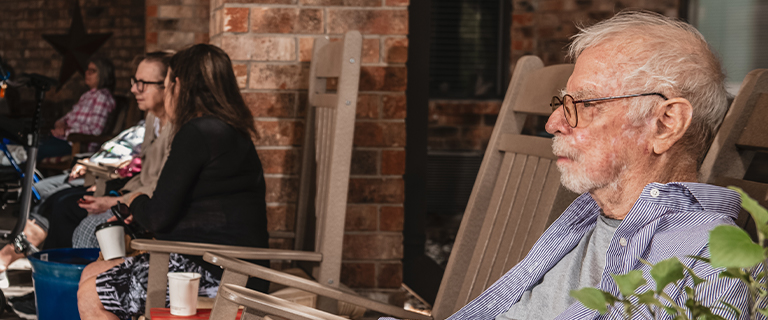Nutrition is pivotal in maintaining health and well-being at any age, but it’s especially critical for seniors. A few common causes of malnutrition in the elderly include:
- Social factors
- Economic factors
- Health-related factors
Our bodies undergo various changes as we age, impacting how nutrients are absorbed and utilized. Proper nutrition can mean the difference between independence and reliance on others for many seniors. It can influence physical strength, mental clarity, and overall quality of life.
Common Causes of Malnutrition in Seniors
Understanding the root causes of malnutrition in seniors is crucial for addressing this issue. Multiple factors can contribute and often intertwine, creating a complex web that requires careful navigation.
Social Factors
Isolation is a significant social factor that can lead to malnutrition. Many seniors live alone, and their social circles may shrink due to retirement, loss of friends, or mobility issues. This isolation can decrease motivation to prepare meals, leading to poor dietary habits. Dining is often a communal activity, and without company, the joy of eating diminishes, potentially resulting in skipped meals.
Limited access to social services and support networks further exacerbates this issue. Seniors may lack transportation to grocery stores or community centers offering meals and companionship. Addressing these barriers is vital for improving senior nutrition.
Economic Factors
Financial instability is another significant contributor to malnutrition. Many seniors live on fixed incomes and may struggle to afford nutritious food. Rising healthcare and living expenses can force them to prioritize necessities over a balanced diet.
Furthermore, food deserts—areas with limited access to healthy food options—can make it difficult for seniors to find affordable, fresh produce. These economic challenges compound, making it essential for communities to develop solutions that provide seniors with the resources they need to maintain a healthy diet.
Health-Related Factors
Health issues often play a prominent role in senior malnutrition. Chronic illnesses, medications, and dental problems can all impact appetite and nutrient absorption. Conditions such as dementia and depression may further affect eating habits, decreasing interest in food or causing forgetfulness about meals.
Medication side effects, like nausea or altered taste perception, can also discourage seniors from eating. Caregivers and healthcare providers should consider these factors when assessing a senior’s nutritional needs and strive for comprehensive care that addresses both medical and dietary concerns.
Strategies for Early Detection & Prevention
Identifying and addressing malnutrition is vital for minimizing its impact on seniors’ health. With the right strategies, caregivers and healthcare providers can prevent malnutrition and ensure seniors receive the necessary nutrition.
Regular Health Assessments
Routine health assessments can help detect signs of malnutrition early. These assessments may include weight monitoring, dietary evaluations, and screenings for underlying health conditions. Healthcare providers should ask seniors about their eating habits and any challenges they face in maintaining a healthy diet.
Collaborating with registered dietitians can also provide valuable insights and personalized recommendations, helping seniors meet their nutritional needs.

Accessible Resources & Support
Ensuring seniors have access to resources and support is essential for preventing malnutrition. This includes transportation to grocery stores, meal delivery services, and access to community centers offering nutritious meals.
Support networks, such as family, friends, and community volunteers, can help seniors with meal preparation, grocery shopping, and companionship during meals. These efforts can significantly improve seniors’ nutritional intake and overall well-being.
Community Meal Programs
One successful approach involves community meal programs, where seniors gather to enjoy nutritious meals in a social setting. These programs address malnutrition’s nutritional and social aspects, providing opportunities for seniors to connect with others while enjoying balanced meals.
Programs like Meals on Wheels have made a significant impact. They deliver nutritious meals to homebound seniors and offer regular check-ins to monitor their well-being. These initiatives serve as models for communities looking to support their senior populations.
Family & Caregiver Involvement
Families play a crucial role in preventing malnutrition. Regular family meals encourage seniors to eat more, benefiting from nourishment and companionship. Involving seniors in meal planning and preparation can also boost their interest in food and encourage healthier eating habits.
Caregivers can support seniors by assisting with grocery shopping, cooking, and meal planning. This collaborative approach fosters a sense of community and empowers seniors to prioritize their nutritional needs.
Personalized Nutrition Plans
Creating personalized nutrition plans can help seniors meet their specific dietary needs. Seniors can develop tailored meal plans that address their health conditions, preferences, and lifestyle by working with healthcare providers and dietitians.
This customized approach ensures seniors receive the required nutrients while accommodating any dietary restrictions or preferences. It also empowers seniors to take an active role in managing their nutrition and health.
Encourage Social Dining
Promote social dining by arranging regular meals with family, friends, or community groups. Sharing meals with others can enhance seniors’ enjoyment of food and encourage them to eat more.
Community Life Can Make a Difference
Malnutrition in seniors is an issue that deserves our attention and action. By understanding the causes and impacts of malnutrition, we can work together to prevent it and ensure seniors receive the nutrition they need to thrive.
At Parson House Austin, we understand the importance of a healthy, balanced lifestyle for our beloved elders and consistently seek to nurture their personal growth and autonomy. Contact us to schedule a community tour so you and your loved one can see the difference community life can make in your senior loved one’s life.



